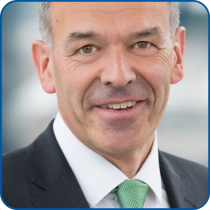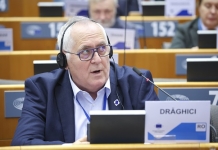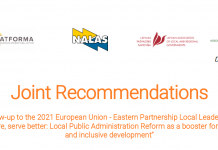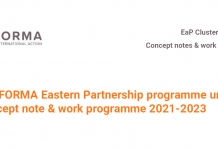More than ever before, the “Sustainable Development Goals” (SDGs) feature high on the political agenda. But why are they so crucial for cities, towns and regions? Because they ensure that the right choices are made today to improve the quality of life for future generations.
In this interview, the Mayor of Innsbruck, Georg Willi presents how its city is working on the ground to make the SDGs a tangible reality, and invites you to attend CEMR congress on sustainable development goals, in 2020.
With 2030 over a decade away, the Sustainable Development Goals may be viewed as a distant concern, far-removed from people’s daily lives. What do the SDGs have to offer to a city such as Innsbruck?
Sustainability is and has to be an important topic now, because we cannot achieve sustainability from one day to the next. In essence, sustainability itself is not a goal that we achieve, but an ongoing process. A process that requires us to change our behavior, our thinking.
The SDGs, the Sustainable Development Goals agreed by the United Nations in the 2030 Agenda, help us in three ways.
Firstly, by 2030, they set a specific goal, a deadline, so to speak. They illustrate the urgency: everything that has a deadline cannot simply be postponed to later.
Secondly, the United Nations commitment demonstrates that sustainability is a global issue that cannot be addressed alone, whether nationally or locally. We depend on everyone to join in. We have to work together.
Thirdly, they also specifically commit us cities – according to the motto think globally and act locally.
How is Innsbruck bringing the global goals to the local reality, involving other stakeholders, such as academia, private sector and citizens?
In short: We focus on cooperation, voluntariness and awareness-raising. Collaboration, for example, with the province of Tyrol. For example, Innsbruck is a sponsored pilot community in a project to improve the adaptation of Tyrolean communities to climate change. As part of this science-accompanied project, policy makers, the administration and the emergency services will be equally involved in assessing risks and developing action plans related to climate change.
Voluntary means that, for example, through subsidies in the field of housing and renovation, we contribute to the implementation of sustainable energy concepts. Inviting or inspiring to participate instead of giving orders leads us to the destination faster, I believe. There are less friction losses.
If we want to change our behavior, we not only have to set a good example, we also need to raise awareness on sustainability. Action begins in the head. That was the reason why in the city council we decided in July to recognise climate crisis as one of the great challenges of humanity, and to subject all future regulations to a climate protection check.
Does Innsbruck have specific partnerships or collaborations with other cities, in Europe or beyond to implement the goals?
Yes, as already said, we attach great importance to cooperation, locally, regionally, nationally and at European level. Let me give you three examples:
Innsbruck has been a partner in the e5 program since 2013, and participates in the European Energy Award. We are proud that we were awarded four e in 2018. A success that we owe to a variety of projects, such as the Innsbruck energy development plan, Innsbruck promotes: Energy Plus, or the bike rental system Stadtrad.
The second example is SINFONIA (Smart Initiative of Cites Fully Integrated to Advanced Investments in Advanced Large Scaled Energy Solutions) – Innsbruck has been participating with Bozen since 2014. In selected city districts, the project with EU financial support aims to reduce energy requirements by 40–50%, increase the share of renewable energy sources by 30%, and reduce CO2 emissions by 20%. Innsbruck and Bolzano act as a kind of prototype for five other European cities.
I would like to name Sister Cities Freiburg as the third example, an initiative launched by our twinned city of Freiburg, in which Freiburg and its twinned cities committed in 2018 to implement the SDGs and joint projects on sustainability.
Are all of these initiatives (questions 2 and 3) framed in a “specific SDG action plan”?
No, there is currently no SDG action plan, but there are plans in several separate areas, such as the City of Innsbruck Energy Plan 2050.
In many areas mentioned in the United Nations action plan, Innsbruck is already lucky to reach good values. For example, when it comes to questions of access to education, we are privileged as a university city, but also as a city with an excellent and diverse offer of schools.
Sustainable energy, climate change, affordable housing, or mobility are currently the main topics for us among the various topics that concern the SDGs.
Austria will be reporting for the first time to the United Nations in 2020 on its implementation of the global goals. Is Innsbruck and the Austrian Association of Cities and Towns involved in this process?
We, that is, all relevant state bodies at all levels, including cities and the municipal association, are required by a government decision of 2016 to incorporate the principles of the 2030 Agenda and the Sustainable Development Goals into our strategies and programs and, where necessary, develop appropriate action plans and measures.
Social partners, civil society, business and academia should also be involved.
We work regularly with the Austrian Association of Cities and Towns, of course, when it comes to the sustainability goals. The association, in cooperation with its Centre for Administrative Research, participates in the voluntary national review of Austria to the United Nations.
If not, are you planning to do your own assessment?
Currently not planned – but there are regular audits in the context of the e5 program.
In May, Innsbruck will be hosting the largest European conference on the SDGs. Organised by CEMR, this major event will gather 1,000 local government leaders and practitioners from all over Europe. How is the city walking the talk by ensuring a sustainable event?
We are still in the planning phase, but the congress city of Innsbruck already has experience with sustainable, environmentally-friendly organisation of major events. The Congress of European Municipalities and Regions 2020, which focuses on the United Nations’ Sustainable Development Goals, will also be held as a Green Meeting, following the criteria of the Austrian Ecolabel. With Congress Innsbruck as the venue, we have an Ecolabel-certified partner at our side, a partner who has many years of experience in this area. Together, we will strive to bring sustainability to the event in all its dimensions, from mobility, through waste management, to catering and gastronomy, just to name a few.









